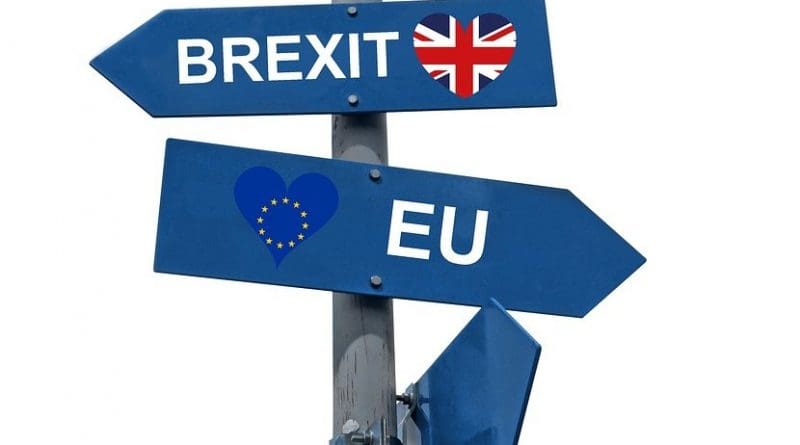Tusk, Trump Raise Issue Of Foreign Influence In UK Election – OpEd
By Arab News
By Cornelia Meyer*
Donald Tusk on Wednesday gave his valedictory speech as president of the European Council. He will step down on Nov. 30 and former Belgian Prime Minister Charles Michel will assume office on Dec. 1.
Two-thirds of Tusk’s presidency has been defined, if not dominated, by Brexit. He always made clear that he did not like Brexit and that he felt the UK was better off staying in the EU. We all remember well his comment about how a “special place in hell” awaits politicians who advocated for Brexit without a plan on how to deliver it, as well as his stark warning to British politicians to use the time of the second Brexit extension from March to Oct. 31 wisely. Some of this has to be seen as a sincere sentiment that it would be better for both the UK and the EU if Britain did not leave.
There was also resentment that Brexit became all-consuming and left no room to discuss other important subjects, such as migration and climate change, to name just two.
Wednesday’s speech went even further, as he reminded the UK that it was not too late to reverse the Brexit course and stay in the EU. He opined that the Dec. 12 general election was the last opportunity to do so. Europeans love soccer, which is why he likened the latest extension to extra time, and added that it could conceivably go to penalties. Just in case his audience did not understand how he really felt, he added that Brexiteers told him that leaving the EU would make the UK great and internationally minded again.
However, Tusk feels that a post-Brexit Britain will be demoted to being a “second-rate player” on the international stage. He even went as far as branding Brexit a delusion of those “longing for the empire.” These were strong words indeed.
Tusk’s speech came on the heels of US President Donald Trump dialing into a radio talk show hosted by his friend and Brexit Party leader Nigel Farage. Trump urged Farage not to fight, but rather to cooperate with Boris Johnson and the Tory party in the upcoming general election in order to achieve Brexit. Farage subsequently withdrew about half of his candidates — all of those who were set to contest seats won by the Conservatives at the last election. We will never know whether this move was influenced by the US president or not, which must be irking Farage. He very much wants to be seen as his own man.
The December general election is incredibly contentious and will be defined by the Brexit debate. This is why the British public reacts strongly to any statement by foreign leaders (it does so too, by the way, to statements from British leaders).
The debate on foreign influence in elections is prevalent across the US and western Europe. There were discussions on this subject following the last US presidential election and the Brexit referendum. Twitter has now stopped running political ads. Pressure on the social media giants to be wary of political influences will persist, although it is at times difficult to draw the line between an innocent opinion and an attempt to influence.
The US president’s suggestions to Farage created quite a stir, while Thursday’s papers were filled with reaction to Tusk’s speech. In the age of social media and 24-hour broadcasting, the world has become a truly horizontal place with no boundaries. It is easy for anybody to voice opinions on any subject in real time. It is not surprising that international leaders avail themselves of such opportunities to voice their opinions on subjects about which they feel strongly. The two Donalds (Trump and Tusk) have demonstrated this in the span of just two weeks — and on opposite sides of the spectrum.
This is a topic that is hard to legislate. Where does the freedom to voice an opinion end and undue influence begin? Do national boundaries preclude foreigners, especially foreign leaders, from voicing their opinions — particularly during an election campaign? There are a plethora of questions that will remain with us for as long as social media and 24-hour broadcasts defy physical borders and ideological boundaries. While we discuss these issues, we should not dismiss the benefits of communication without boundaries for all. It has made the world a more accessible place.
- Cornelia Meyer is a business consultant, macroeconomist and energy expert. Twitter: @MeyerResources

